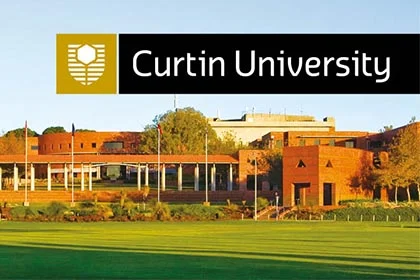30 Oct 2025 POSTPONED

**NOTE THIS CONFERNVE HAS BEEN POSTPONED DUE TO UNFORSEEN CIRCUMSTANCES. WATCH THIS SPACE FOR DETAILS IN 2025.
The African Studies Association of Australasia and the Pacific (AFSAAP) 44th Annual Conference: Harnessing the African Diaspora to Encourage Reciprocity and Collaboration in Shaping Global Agendas.
Hosted by Curtin University, Perth WA
Background and aim
African Studies as a concept is understood to encompass a wide range of disciplines that take Africa as a subject of study. The field has evolved over time to include a range of approaches across a wide portfolio, including inter alia: political sciences, economics, history, art, human sciences, linguistics, theology, law, and health sciences. Therefore, African Studies may entail health education in Africa, African politics and law, African philosophy and religion, African economic studies, African environmental studies, African history, African sociology and anthropology, African linguistics and art. From this perspective, African Studies relates to all aspects of the international agendas such the UN Sustainable Development Goals, hence requiring localising global agendas withing the African contexts. Yet, this is not always the case, and failure to customise global agendas to reflect the contexts in which they are implemented leads to lack of progress.
This conference will focus on how to harness brain circulation in the diaspora to bridge the gap between global agendas and the African contexts in which they are implemented. Data on the brain drain suggest that sub-Saharan Africa struggles to hold on its highly qualified professionals. The exodus of highly qualified professionals and academics is partly responsible for the underdevelopment of African studies in general, and the continent’s poor economic progress in particular. Emigration of highly qualified professionals has affected all facets of African studies across the globe. For example, the recent report by the World Health Organization on the workforce support and safeguards list 2023, identified 55 countries that may not meet achieve the UN Sustainable Development Goal target for universal health coverage by 2030 due to insufficient numbers of health workers. Of these 55 countries, 37 are in the WHO African region, with significant health staffing shortages. The 2022 United Nations report on labourforce participation indicated that, as the youngest continent on the globe with 10 to 12 million young joining the labour force each year, the African continent cannot meet this huge employment demand as it creates only 3 million jobs per year. Limited economic opportunities mean 70-75% of young Africans who cannot find employment migrate to Europe and America for economic opportunities.
Harnessing African studies through the African diaspora lens could help tackle the brain drain through brain circulation. This can be harnessed through increasing partnerships in education, research, development, social services, the arts, and more. Therefore, the aim of the conference is to examine how past, present, and future dimensions of African studies can inform the harnessing of the African diaspora to encourage reciprocity and collaboration in knowledge generation and entrepreneurship to shape global agendas.
Call for papers
Please follow the relevant submission guidelines and send to secretary@afsaap.org.au by December 8th. Successful applicants will be contacted by December 31st.
Academic papers which align with the following themes/subthemes. Presentations are to be approximately 10 minutes long with 5 minutes for questions. Please submit an abstract of maximum 300 words.
THEME 1. Understanding African Studies
- Historical and contemporary global trends in African Studies
- The future of African Studies – global perspectives
THEME 2. Government and Politics
- Challenges and opportunities in Australia’s Africa policy arena
- Harnessing African voices in shaping global agendas
THEME 3. Heath, Technology, and Science
- African insight into global health issues
- Technology and artificial intelligence justice
- Harnessing African talent in the science arena
THEME 4. African Resources African Voices
- Driving Africa’s economy
- The Australia-Africa mining nexus
- Ethical resource extraction to benefit all Africans
Casual community member presentations from those with experience in the following fields. Presentations can be in any format, maximum 15 minutes. Please submit an overview of maximum 300 words.
THEME 5. Insights from NGOs
- Casual presentations from Africans in the field of non-governmental practice
THEME 6. African Creative Spaces
- Casual presentations from Africans in the field of music and dance
- Casual presentations from Africans in the field of art and fashion
- Casual presentations from Africans in the field of storytelling
Contributions from those with expertise on the following subjects. Please submit an overview of your relevant experience and/or qualifications and how you could contribute to the discussion, maximum 500 words.
ROUNDTABLE 1. Enhancing collaboration in African Studies
ROUNDTABLE 2. Brain drain: causes, consequences, solutions
The following will also be open to all attendees.
WORKSHOP 1. How to influence policy – hear from experts to get guidance on how to influence real-world policy.
WORKSHOP 2. Getting published in ARAS – hear from our journal editor/s on how to get your paper published with us.
OPEN SPACE EVENT. Collaborating with community – an open circle discussion between academics and community members on how we can enhance collaboration and thus brain circulation.
WORLD CAFÉ. Opportunities for partnership and collaboration – small group ‘rounds’ to find those with similar interests, to brainstorm collaborations, and to share opportunities.
CONFERENCE DINNER. Details TBA, note that this will come at an extra cost to cover a delicious African feast and entertainment.
Registration
Please send your payment (in accordance to the table below) to African Studies Association of Australasia and the Pacific at NAB via BSB 082-309 ACC 39-643-2837. You must use the reference code CONF2025
| Member | Non-Member | |
| Full conference | $220 | $290 |
| Full conference student/unwaged | $160 | $220 |
| Day pass | $85 | $110 |
| Day pass student/unwaged | $65 | $85 |
| Online Access | $30 | $45 |


Sorry, the comment form is closed at this time.